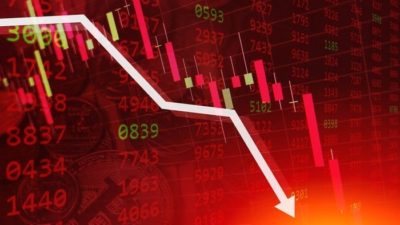This article was originally published on Fool.com. All figures quoted in US dollars unless otherwise stated.
Shares of Nvidia (NASDAQ: NVDA) were under pressure on Tuesday, falling by 6.22%.
Nvidia stock appeared to be caught up in overall market weakness, and taking a breather after closing at a new record high on Monday. Furthermore, investors seem to be digesting the myriad product announcements from the artificial intelligence (AI) chipmaker in conjunction with the kickoff of CES yesterday in Las Vegas.
Drinking from a firehose
CEO Jensen Huang was the keynote speaker to open CES on Monday, and his address came with a long list of product announcements, including:
- Project DIGITS, a pocket-sized personal AI supercomputer powered by its Grace Blackwell Superchip.
- New next-generation GeForce RTX 50 series gaming GPUs and laptops powered by AI and its Blackwell architecture.
- The Cosmos platform with new AI models for robots, autonomous vehicles, and computer vision.
- AI Blueprints for Agentic AI, a system that helps developers "build, test, and run AI agents anywhere" to automate a laundry list of business functions.
There were other, less groundbreaking announcements, but you get the picture.
Nvidia stock had reached a new all-time high in early November, only to lose more than 13% of its value on no news. After this all-too-brief correction, however, Nvidia has enjoyed a stellar rebound, notching a new record close on Monday.
The road ahead
Wedbush analyst Dan Ives noted that Huang's speech at the event "felt more like a rock concert vibe than a tech CEO speech." He went on to suggest that despite Nvidia's meteoric rise of more than 900% over the past two years, the stock still has room to run. Nvidia's market cap -- which currently sits at roughly $3.5 trillion -- will ultimately clear $4 trillion and could run as high as $5 trillion over the coming 12 to 18 months, which suggests potential upside of over 40%.
Yet for all that opportunity, Nvidia stock is remarkably affordable, selling for roughly 32 times its estimated earnings for fiscal 2026, which begins in late January.
That's why I still view Nvidia stock as a buy.
This article was originally published on Fool.com. All figures quoted in US dollars unless otherwise stated.









